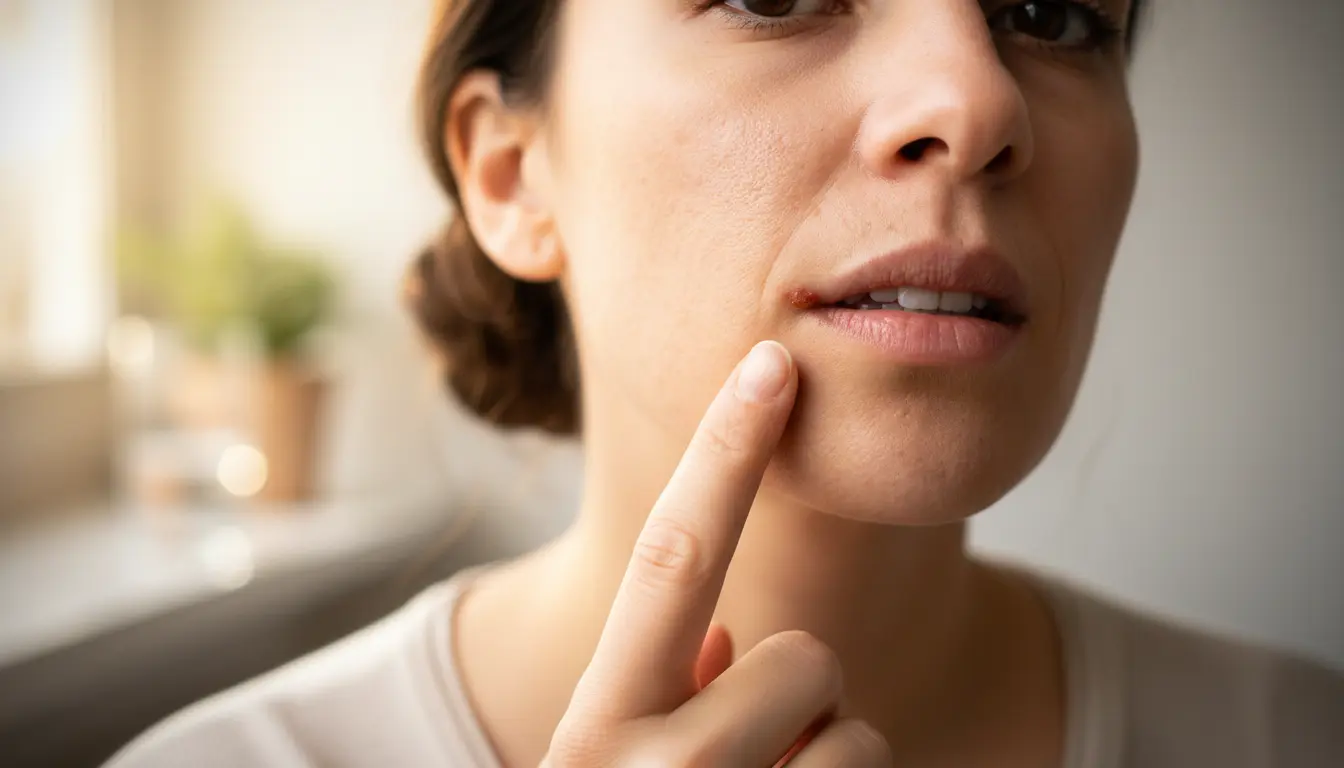Why Do Cold Sores Haunt So Many of Us?
According to French health authorities, a staggering 90% of adults in France carry the herpes simplex virus type 1—the same virus that usually takes up residence on the face, and typically sets up shop during childhood. This virus has a sneaky habit: after causing a brief bout of inflammation, it goes dormant in a nerve ganglion and can reawaken seemingly at random, triggering those classic cold sore flare-ups.
Is It Really About the Fever?
The name “cold sore” might suggest these appear when you have a fever, but—bad news—it’s not quite that simple. The truth is, these outbreaks can happen at almost any time, thanks to a variety of triggers. Dr. Vincent Valinducq, speaking on French morning show “Bonjour! La Matinale TF1,” explained:
It’s true that if you have a fever, you can get a cold sore, but there are other circumstances that promote their arrival: stress, tiredness… Sometimes, it’s exposure to the sun, and for women, they can show up during their period.
So, if you’re trying to avoid outbreaks or want to deal with them effectively, Dr. Valinducq recommends figuring out your unique trigger. Maybe it’s stress or exhaustion, or perhaps it’s just those bright, sunny afternoons catching you off guard.
He goes on to share:
Some of my patients tell me it’s the sun. In that case, they use a lip balm with UV protection to help keep the outbreaks at bay.
Your Best Defense: Act Fast
According to Dr. Valinducq (a returning expert on the show), your top ally against cold sores is quick action. As he explained back in May in another episode:
So, when you feel it coming—when there’s that tingling—what can you do? Take action immediately. It’s really before it actually erupts, before it starts bothering you, that you need to act.
He adds that you can find over-the-counter creams at the pharmacy (no prescription required) that can help—if you recognize the tell-tale signs early. Just remember: rapid reaction is key!
When to Call the Doctor
If you feel you need extra help, don’t hesitate: make an appointment with your doctor. They can prescribe an antiviral medication—best taken within 72 hours of the outbreak’s first symptoms—for a quicker recovery.
So, next time you feel that all-too-familiar tingling before a cold sore, consider your possible triggers (stress, fatigue, too much sun, or a tough week) and remember: being proactive is your best shield against these unwelcome visitors.

